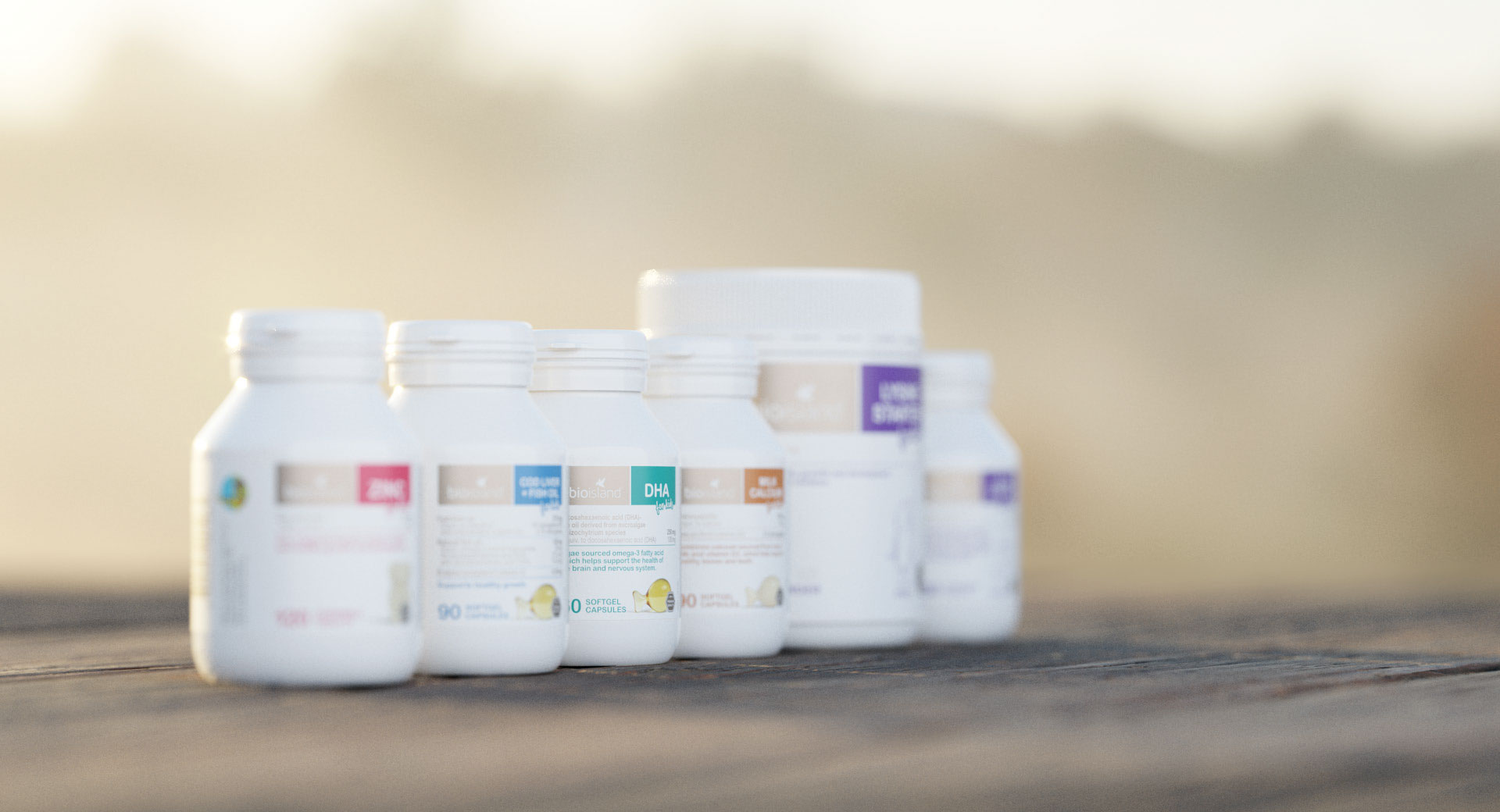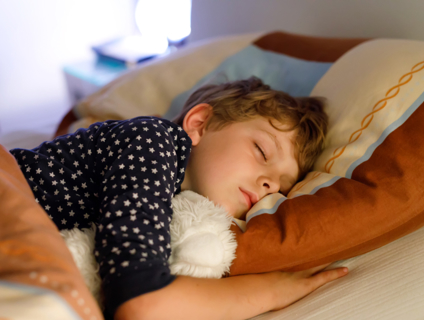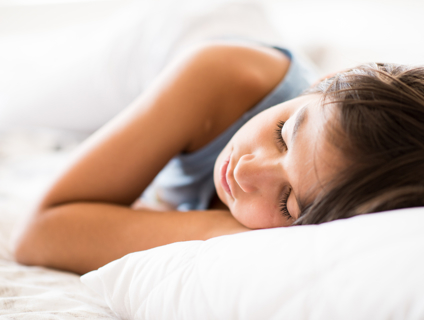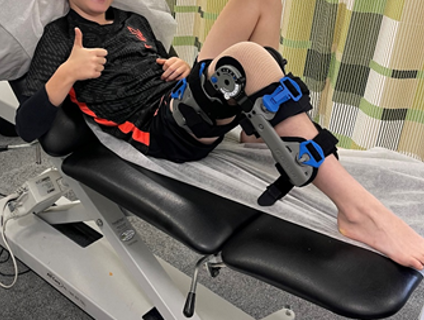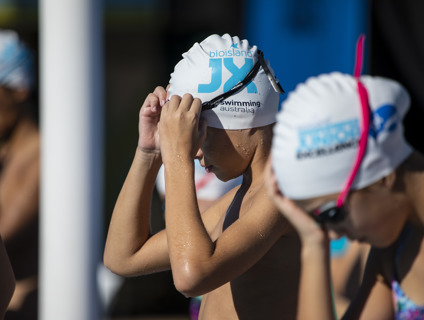
A world-first app could help parents and sporting clubs quickly identify when a young person has suffered a sporting blow that needs follow-up.
A world-first app could help parents and sporting clubs quickly identify when a young person has suffered a sporting blow that needs follow-up.
Concussions are surprisingly common in childhood and teen sport. Most young people recover without any long-term effects. But complications can arise, so parents and sports clubs should treat all falls and collisions seriously. This article highlights some steps you can take – and a promising new health app – that could help ensure your child makes the best possible recovery after a sporting bump or jolt.
1. Know the signs
When a young person gets a head injury on the sporting field, surprisingly, they don’t always receive a formal medical assessment. They may even continue to play in the game, despite having symptoms. It’s possible that some are missed because of a common misperception that concussion sufferers always lose consciousness. The truth is this only happens in 8-10% of cases. Parents and sporting groups should also know the more common and subtle signs. These include headaches, dizziness, vertigo, lack of awareness of surroundings, nausea and vomiting.
Concussion domains and their symptoms
|
Physical |
• Headache • Nausea/Vomiting • Sensitivity to light/noise • Visual problems • Fatigue • Dazed, Stunned • Dizzy, Balance problems |
|
Cognitive |
• Feeling mentally “foggy” • Feeling slowed down • Answer questions slowly • Difficulty concentrating • Forgetful of event • Repeats questions • Drop in academic performance |
|
Emotional |
• Irritability • Sadness/Depression • Personality change • Anxiety/panic • More emotional • Less emotional apathy |
|
Sleep |
• Drowsy • Sleeping more • Sleeping less • Difficulty falling/staying asleep |
2. Take it seriously
Even if a knock to the head appears minor, caregivers should consider it may be concussion when a young person displays even one of the symptoms mentioned above after an on-field injury. Young brains are even more vulnerable to concussion than adults.
Identifying concussion in a young person can be difficult for non-medical professionals. That’s why concussion experts from the Children's Hospital Institute of Sports Medicine (CHISM) at The Children’s Hospital at Westmead are working on a simple to use smartphone app that could help parents, coaches and others in kids’ sport quickly and easily spot serious head knocks that require medical attention. Neurocover is being developed in collaboration with University of Sydney software engineers and could help prevent brain damage and death in young people. The app could be used, for example, following a heavy collision during rugby league. A player who does not show any obvious signs of concussion may continue to play-on while their brain is in a highly susceptible state to further injury. The design of the app will allow for a more sensitive form of assessment following any potential head trauma that addresses a number of different components of possible dysfunction.
3. Seek medical assistance
When a child suffers a head trauma in sport, they should be removed from the field for the rest of the game. If the injury seems severe, like a spine injury or skull fracture, stabilise the person and call an ambulance. If the young person is concussed, but stable, they will still need a formal medical evaluation.
When a concussion is overlooked, and a child doesn’t receive a proper recovery plan, they may endure prolonged symptoms or serious conditions like secondary impact syndrome. Further information on this phenomenon is available at https://www.sciencedirect.com/topics/medicine-and-dentistry/second-impact-syndrome
4. Observe closely
Even if your child has already received an initial assessment at the game and seemed ok, you should take them to the nearest Emergency department if they develop any of the features of HEAD BUMPS:
Headache
Eye trouble (blurred/double vision)
Abnormal behaviour
Dizziness
Balance dysfunction
Unsteady on feet
Memory impaired
Poor concentration
Something’s not quite right
The hospital will:
- Take a careful recount of the injury
- Observe for pupil dilation, abnormal eye movements, loss of balance and coordination
- Check for neck pain
- Consider if other conditions could be responsible, such as migraine headache
- Assess your child’s attention and memory.
They may need further tests and to be hospitalised over night for observation. A serious concussion may require more targeted treatment that is best performed by a specialty concussion service. It may also cause a more prolonged recovery, therefore helping children, and indeed their families, manage expectations is an important principle of management.
5. Take it slow
Before your child leaves hospital, their doctor will provide you with a Concussion Action Plan (CAP). It describes in detail the steps they should take to make the best physical and mental recovery. A healthy diet, adequate hydration, and good sleep are important. Return to normal activities, including exercise, should be gradual to prevent complications. More info available at: https://www.ncbi.nlm.nih.gov/pmc/articles/PMC6089233/
Concussion symptoms in young people can take around 10-14 days to resolve, and even up to four weeks. Ongoing symptoms like poor balance, headaches and memory problems should be followed up with a specialist. A small number of young people will continue to suffer symptoms beyond a typical recovery period and should be referred to a speciality concussion service such as the Kids Concussion Service at The Children’s Hospital at Westmead.
A final word
Tremendous concern exists about the brain damage that can be caused by repeat concussions, called chronic traumatic encephalopathy. Currently, the best strategy is to prevent concussions from happening by ensuring young people are in good physical condition and of appropriate age and size to undertake their sports or activity. But when concussions do happen to young people, we can empower them, their families and sporting groups through education and the use of point-of-care apps such as CHISM’s Neurocover app.
Together we can ensure that every young person who suffers a concussion can have the best care and recovery possible to continue living a full and active life.
Thank you Bio Island!
Funding innovative ground-breaking and potentially life-saving health tools like the CHISM’s Neurocover app wouldn’t be possible without the support of Bio Island. Bio Island, through partnership with Sydney Children’s Hospitals Foundation, is supporting the CHISM team within The Children’s Hospital at Westmead to undertake vital research and development that could benefit young people with sport-related injuries. You can learn more about Sydney Children’s Hospitals Foundation here (link to https://www.schf.org.au)
